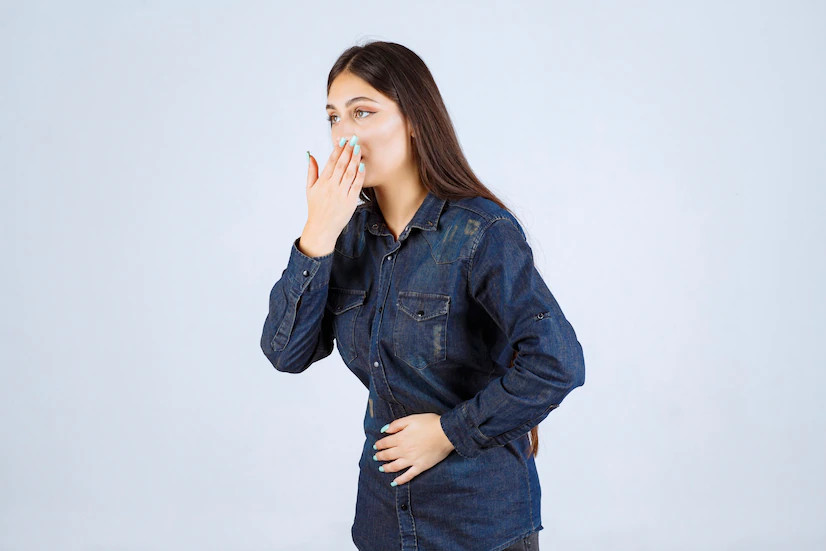Mukbang trends have recently gained popularity across multiple platforms, including YouTube, Instagram, TikTok, and others. This trend includes broadcasts in which someone eats a large variety of different types of food.
Mukbang is popular because it focuses on the sounds of eating, such as chewing, biting, and swallowing, which some people enjoy. While Mukbang can be entertaining, it is important to be aware of the potential negative effects of consuming large amounts of food on the body.
Health impacts of Mukbang
The Mukbang trend originated in South Korea, combining the terms "muk-ja" (eat) and "bang-song" (broadcast). In live streams or recorded videos, individuals eat large amounts of food while interacting with their viewers.
Although this trend may seem fun and entertaining, there are several negative effects that might arise for those engaging in this practice, including:
Excessive caloric intake
One major issue with mukbang is its high caloric intake. Many participants consume food in quantities far exceeding their daily caloric needs.
Constantly consuming excess calories can result in significant weight gain and an increased risk of obesity. Obesity is a complex condition that increases the risk of many chronic diseases, including type 2 diabetes, heart disease, and hypertension.
Digestive issues
Eating large portions in a short period of time, as seen in Mukbang trends, increases the risk of digestive problems. A large amount of food can cause bloating due to gas buildup in the digestive tract.
Mukbang frequently features fast food or foods high in fat, sugar, and salt. Foods high in fat and sugar can slow digestion and cause constipation.
Eating in large amounts can also increase the risk of acid reflux, which occurs when stomach acid rises into the esophagus. You may feel a burning sensation in your chest and throat, along with coughing and hoarseness.
Mental health issues
Mukbang content creators are frequently under pressure to consistently produce engaging videos in order to attract and retain viewers. This pressure can cause stress and anxiety, particularly if they feel compelled to meet viewer expectations or stick to a strict schedule.
They may also be self-conscious about their body image, particularly if they have to consume large amounts of food while maintaining an ideal weight.
Furthermore, viewers, particularly teenagers and children, may imitate unhealthy eating habits seen in mukbangs. This trend can lead to overeating and a stronger preference for fast food, resulting in unhealthy eating habits and increased health risks.
If you or your family enjoy watching Mukbang shows, try to limit your viewing time and frequency. Do not let this content influence your eating habits. If you or your family have health concerns about your eating habits, consult with a doctor or a nutritionist.
Do you have questions about eating habits or dietary practices? You can make use of the consultation features that are available in the Ai Care application by downloading the Ai Care application from the App Store or Play Store.
Looking for more information about other diseases? Click here!
- dr Nadia Opmalina
Cleveland Clinic (2023). Overeating. Available from: https://my.clevelandclinic.org/health/diseases/24680-overeating
Daniel Preiato (2020). 7 Harmful Effects of Overeating. Available from: https://www.healthline.com/nutrition/overeating-effects
Mayo Clinic (2023). Obesity. Available from: https://www.mayoclinic.org/diseases-conditions/obesity/symptoms-causes/syc-20375742
Stephanie Watson (2024). Serious Health Problems Caused by Binge Eating Disorder. Available from: https://www.webmd.com/mental-health/eating-disorders/binge-eating-disorder/health-problems-binge-eating
Stephanie Watson (2024). How Long Does It Take to Digest Food?. Available from: https://www.healthline.com/health/how-long-does-it-take-to-digest-food
Annie Stuart (2024). Acid Reflux Disease. Available from: https://www.webmd.com/heartburn-gerd/what-is-acid-reflux-disease
Alina Petre, MS, RD (NL) (2024). 6 Common Types of Eating Disorders (and Their Symptoms). Available from: https://www.healthline.com/nutrition/common-eating-disorders












